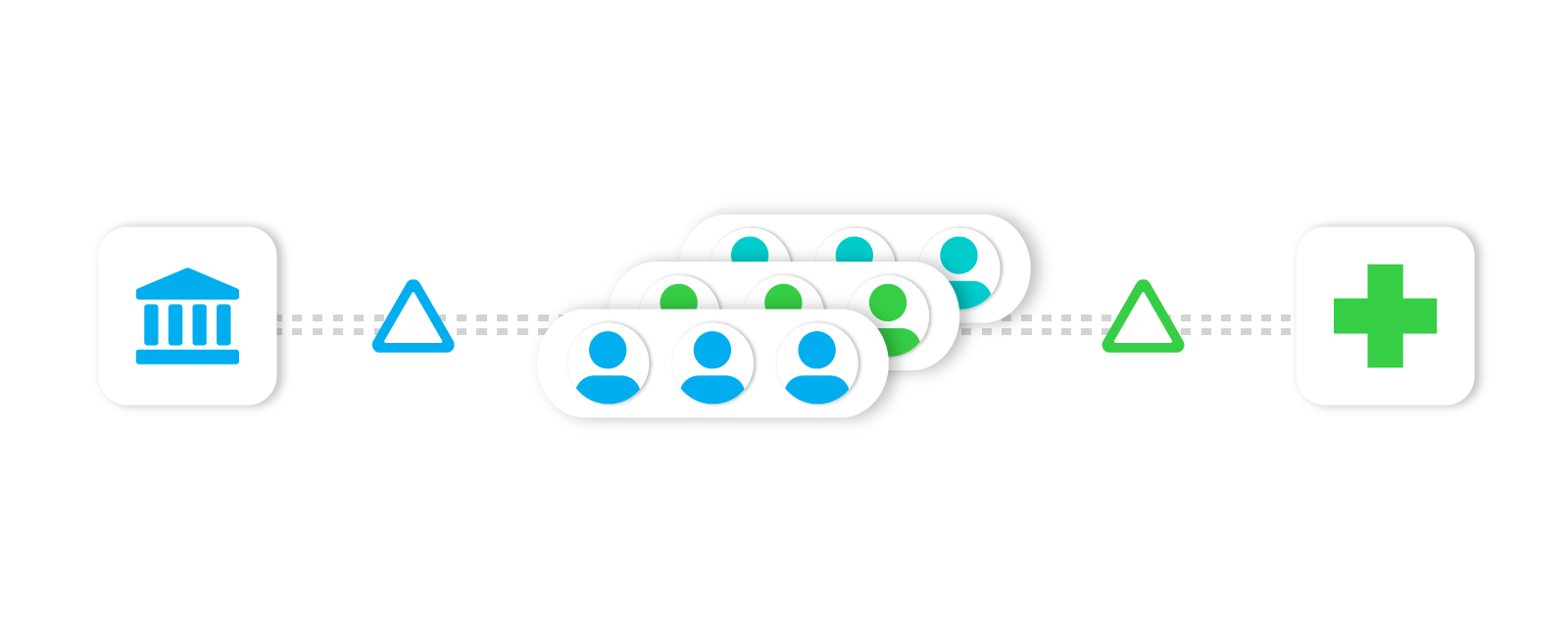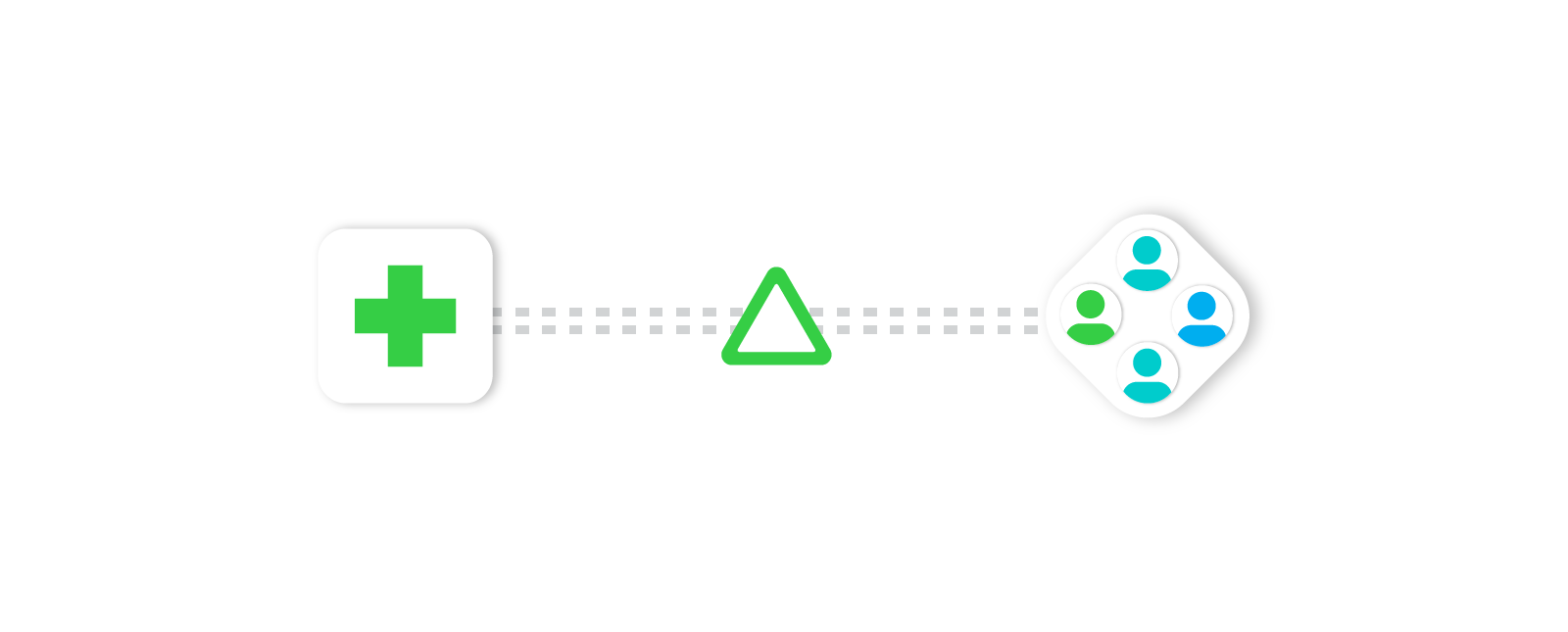As companies grow and evolve, so do their data management needs. While generic customer relationship management (CRM) software may work for some businesses initially, it quickly becomes outdated and inadequate.
That’s because off-the-shelf CRMs lack the necessary customization to fully integrate with a company’s unique workflows and data management practices. As a result, critical data may become siloed within different departments, hindering collaboration among teams such as sales and marketing.
Additionally, off-the-shelf CRMs don’t meet the specific compliance requirements of industries like healthcare and banking.
In this article, we will explore the limitations of generic CRM software and the importance of customizable data management solutions for businesses to thrive and maintain compliance in today’s fast-paced, data-reliant market.
Data Silos Stifle Sales
Off-the-shelf CRM software is a popular choice for many businesses looking to manage their customer data.
However, these generic CRMs often lack the customization options needed to integrate with a company’s distinct workflows and data management practices, resulting in data silos among various departments. Consequently, teams like sales and marketing may be unable to collaborate effectively.
The Problem with Off-the-Shelf CRMs
When there are data silos in a company, sales teams may not have access to all the information they need to sell effectively, such as purchase history and transaction details. With these insights, sales teams can accurately prioritize prospects and identify new opportunities for growth in existing accounts.
Impeding Cross-Functional Collaboration
Data silos also impede cross-functional collaboration. If different departments in an organization have siloed data repositories without sharing information, this can lead to clarity and efficient service delivery.
For example, suppose the customer experience team can’t access marketing analytics that could help inform promotional strategy. In that case, they may miss out on validation opportunities or delay campaigns while trying to find alternative sources of this information.
Preventing Personalization Efforts
Finally, data silos prevent personalization efforts within sales initiatives. Without insight into customers’ behavior across channels or input from other departments on what works well with specific groups of buyers, sales content becomes generic at best and impersonal and unhelpful at worst.
The Solution: Comprehensive Data Management
There must be a way to create comprehensive data management solutions that enable seamless integration between departments. By constructing a complete database and breaking down the predetermined data silos, companies can open up new horizons of possibility.
With streamlined workflows, teams become more efficient, and employees gain access to new insights through dynamic collaboration opportunities across multiple departments.
The Benefits of Customizable Software Solutions
Customizable software solutions are vital in enabling businesses to unlock their potential. By providing the tools needed to standardize processes while alleviating manual drudgery from tedious tasks like workflow tracking, companies can ensure up-to-date data and enhanced productivity within their teams.
The Importance of Streamlined Workflows
At its core, having customizable CRM systems allows for better communication between departments by allowing them to access relevant information quickly when needed.
The result? Easier reorganization of workflow priorities when changes arise in real time, less wasted effort as staff members collaborate on projects more efficiently and effectively, and improved customer experience as everyone works together throughout the customer journey toward success.
The Role of CRM in Improving Communication between Departments
The lack of customization of traditional off-the-shelf CRMs creates serious roadblocks that inhibit progress—unless you take advantage of the innovative, customizable solutions available today.
By developing a comprehensive solution tailored specifically to your business’s data management needs and leveraging automation tools to minimize manual workarounds, you will benefit from all the advantages this technology offers.
Automation As Dynamic As Your Business
Businesses should carefully consider the implications of investing in an off-the-shelf CRM system. While these solutions may initially be sufficient, they most often optimize for specific workflows and automation applicable to any industry.
The fact of the matter is that companies need more customization options to remain competitive and avoid manual processes that waste precious time and resources without improving efficiency and productivity.
The Solution: Investing in a Custom CRM System
The solution is investing in a custom CRM system tailored to a company’s needs. Such an investment can give businesses a powerful tool for optimizing operations, streamlining workflows, and automating routine tasks. A customized CRM solution considers a company’s unique demands and provides the necessary features tailored to their industry needs.
The Benefits of a Customized CRM System
With this approach, businesses can ensure they have all the necessary tools to improve efficiency, reduce costs, and maximize profits. Customization options are essential if companies wish to stay ahead of the competition in today’s digitized marketplaces.
Customization Meets Compliance Standards
The lack of customization from off-the-shelf CRM solutions can create compliance risks for industries like healthcare and banking, subject to strict regulations and guidelines. These industries require specialized solutions tailored to their needs where off-the-shelf CRMs simply won’t meet the requirements.
Healthcare and banking are heavily regulated industries that require businesses to comply with various laws and regulations, such as the Health Insurance Portability and Accountability Act (HIPAA) and the Payment Card Industry Data Security Standard (PCI DSS).
These regulations require businesses to protect patient and customer data, maintain privacy and security and follow specific procedures when handling sensitive information.
Compliance Risks in Regulated Industries
For example, healthcare providers may need to track patient data, including medical histories and treatments, which requires a customizable, HIPAA-compliant CRM to handle these specific needs. Similarly, banks and financial institutions may need to track customer data, including transaction histories and credit scores, which require a CRM tailored to handle these requirements.
In addition, off-the-shelf CRMs may not be able to integrate with existing systems necessary for compliance. For example, most healthcare providers will have an electronic health records (EHR) system compliant with HIPAA regulations. If integrated with the wrong CRM, that decision could be costly, leading to noncompliance and penalties.
The Benefits of Custom-Tailored CRMs for Compliance
Customization and compliance options are essential for industries like healthcare and banking to meet the demands of regulators and privacy concerns of the public. To meet the industry’s specific needs and integrate with existing systems, custom-tailored CRMs reduce the risk of non-compliance and penalties.
Final Thoughts on Customizing for Compliance
In conclusion, off-the-shelf customer relationship management (CRM) software can be inadequate for businesses as they grow and evolve. Generic CRMs lack the necessary customization to fully integrate with companies’ unique workflows and data management practices, resulting in data silos that hinder collaboration among teams like sales and marketing.
Furthermore, off-the-shelf CRMs may not meet the specific compliance requirements of industries such as healthcare and banking, creating significant business risks.
By breaking down data silos and implementing customizable data management solutions, businesses can improve cross-functional collaboration, enhance automation processes, and meet compliance standards.
That allows for more efficient and effective use of data, resulting in better decision-making and customer satisfaction. Companies that take charge of their data management practices, ensuring they meet all applicable laws and regulations, can build trust with customers.
In today’s fast-paced market, businesses must adapt and evolve their data management practices to remain competitive and compliant.
At Kizen, we built an industry-tailored, revenue-driving CRM ready to supercharge your business. We have the expertise to deploy in weeks, not months, without disrupting your current operations and all the integrations to connect your existing software applications while meeting the most rigorous compliance standards. Connect with us on our website, and we’ll schedule a time to chat.










